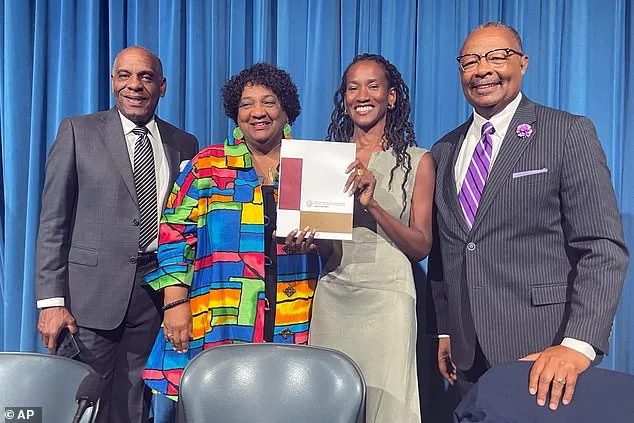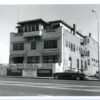- New York Governor Kathy Hochul signed the new legislation during a ceremony at the New-York Historical Society in Manhattan on Tuesday
- She revealed the commission will research the history of slavery in New York and look into what reparations may look like in order to ‘right the wrongs of the past’
- It comes after California became the first state to create a reparations task force in 2020
New York Governor Kathy Hochul has signed a new bill, which will order a commission to study reparations and racial justice in the state.
The Democrat announced she would be signing the legislation during a ceremony at the New-York Historical Society in Manhattan on Tuesday.
‘Today, we are continuing our efforts to right the wrongs of the past by acknowledging the painful legacy of slavery in New York,’ Governor Hochul said.
She revealed the commission will research the history of slavery in New York and look into what reparations may look like in order to ‘right the wrongs of the past’.
It comes after California became the first state to create a reparations task force in 2020 and its committee calculated that the state was responsible for more than $500 billion due to generations of harm caused by discriminatory policies.
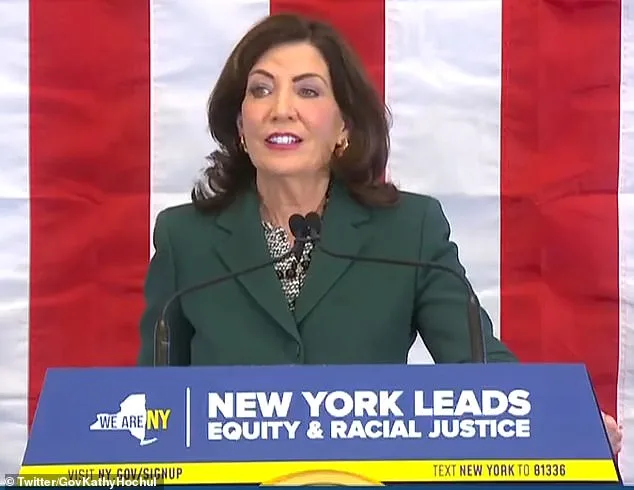
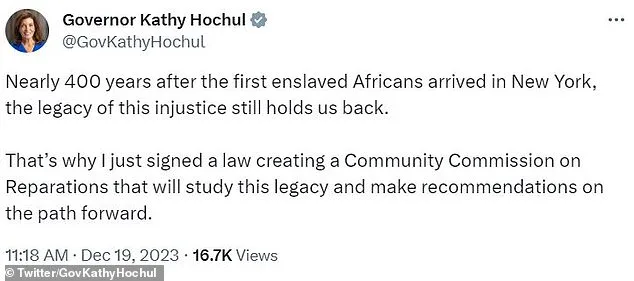
Governor Hochul signed the legislation six months after state lawmakers passed the bill to examine the extent to which the federal and state government supported the institution of slavery.
A nine-member commission will study the lasting impact of slavery and make non-binding recommendations on reparations.
Three members will be appointed each by the governor, the Assembly and the Senate.
‘If this committee can present a viable path forward to helping the descendants of New York slaves and addressing the harms and disparities that exist in education, that exist in healthcare, that exist in the environment, that will lift all of us up,’ Hochul said.
‘We have a moral obligation to reckon with all parts of our shared history as New Yorkers, and this commission marks a critical step forward in these efforts.’
She added: ‘Let’s be clear about what “reparations” means. It doesn’t mean fixing the past — nobody can do this. But it does mean offering more than an apology.’
The Governor discussed the history of slavery and New York’s connection to the Underground Railroad.
‘What’s hard to embrace is that our state flourished from that slavery. It’s not a beautiful story, but indeed it is the truth,’ she said.
‘Today, I challenge all New Yorkers to be the patriots and rebuke and not excuse our role in benefitting from the institution of slavery.’
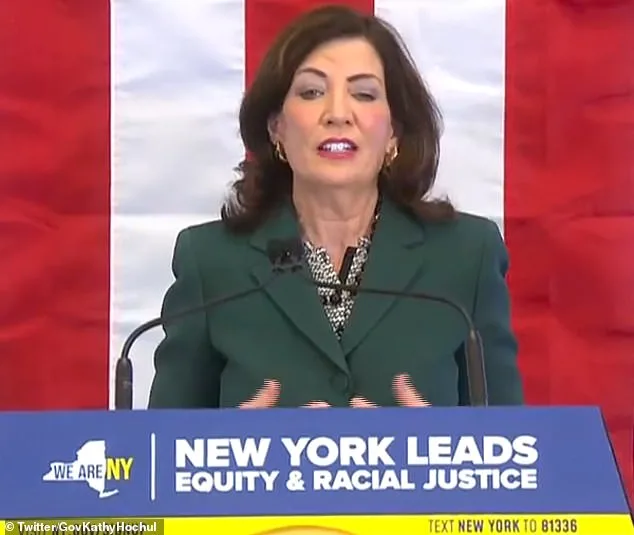
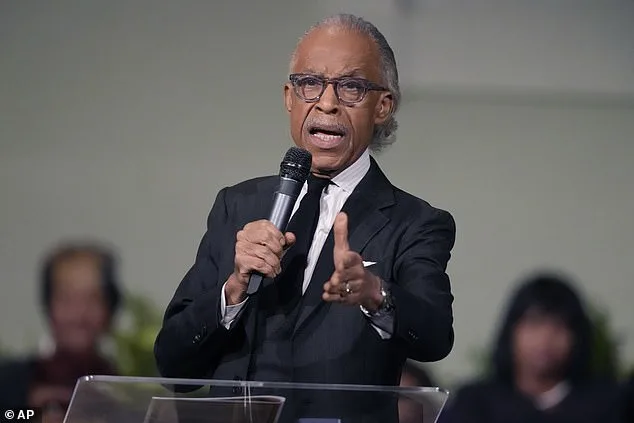
Hochul added that black people in the US have suffered years of racial discrimination through redlining, housing discrimination, and segregation following the abolishment of slavery.
She said African Americans continue to suffer from poverty, illness and infant mortality as well as difficulties with education and home ownership.
The signing of the bill was hailed as a ‘historic day’ by civil rights activist Reverend Al Sharpton who spoke at the ceremony.
‘You cannot heal unless you deal with the wounds, and this bill will put a commission together to be healing the wounds,’ he said.
‘Only those that have seen people marginalized for even raising the issue can understand the historic significance of today.’
New York fully abolished slavery by 1827, but much of New York City profited heavily off of the slave industry.
The commission would be required to deliver a report a year after its first meeting and its recommendations could potentially include monetary compensation.
The new law is likely to draw some controversy, especially with the possibility of cash reparations.
But the governor and other state lawmakers emphasized at the ceremony that the legislation would help open up conversations about what reparations could look like.
‘This is not just about who we’re going to write a check to, and what the amount is,’ said state Assembly Speaker Carl Heastie.
‘It begins the conversation with one recognizing the issues that affected b
lack people and descendants of slaves in this state.’
Hochul quoted Dr Martin Luther King Jr. at the ceremony and said: ‘We may have all come on different ships, but we are on the same boat now.’
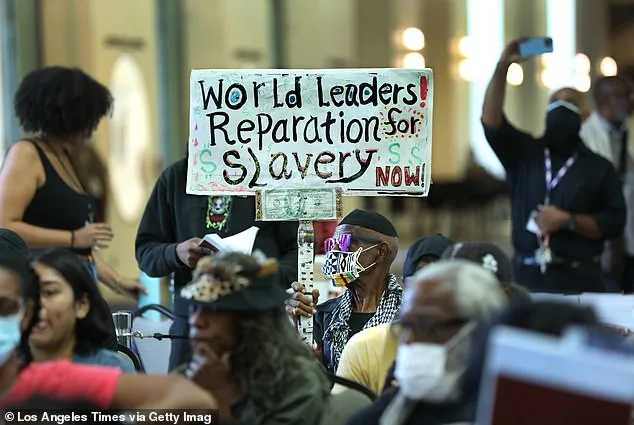
California’s reparations task force released its final 1,200 page report back in June.
The group did not put an overall figure on reparations in the document, but previously touted as much as $800 billion to be handed to black people.
Lisa Holder, a civil rights attorney and task force member, said the report was a ‘book of truth’ which ‘will be a legacy, will be a testament to the full story’.
‘Anyone who says that we are colorblind, that we have solved the problem of anti-black racism, I challenge you to read this document,’ she said.
Kamilah Moore, an intellectual property and entertainment lawyer who led the task force, called the last two years a whirlwind.
‘It’s been very work intensive, but also very cathartic and very emotional,’ she said. ‘We’re standing in the shoes of our ancestors to finish, essentially, this sacred project.’
In total, the panel proposed more than 100 policies and also called for a formal apology for ‘the perpetration of gross human rights violations and crimes against humanity on African slaves and their descendants’.


